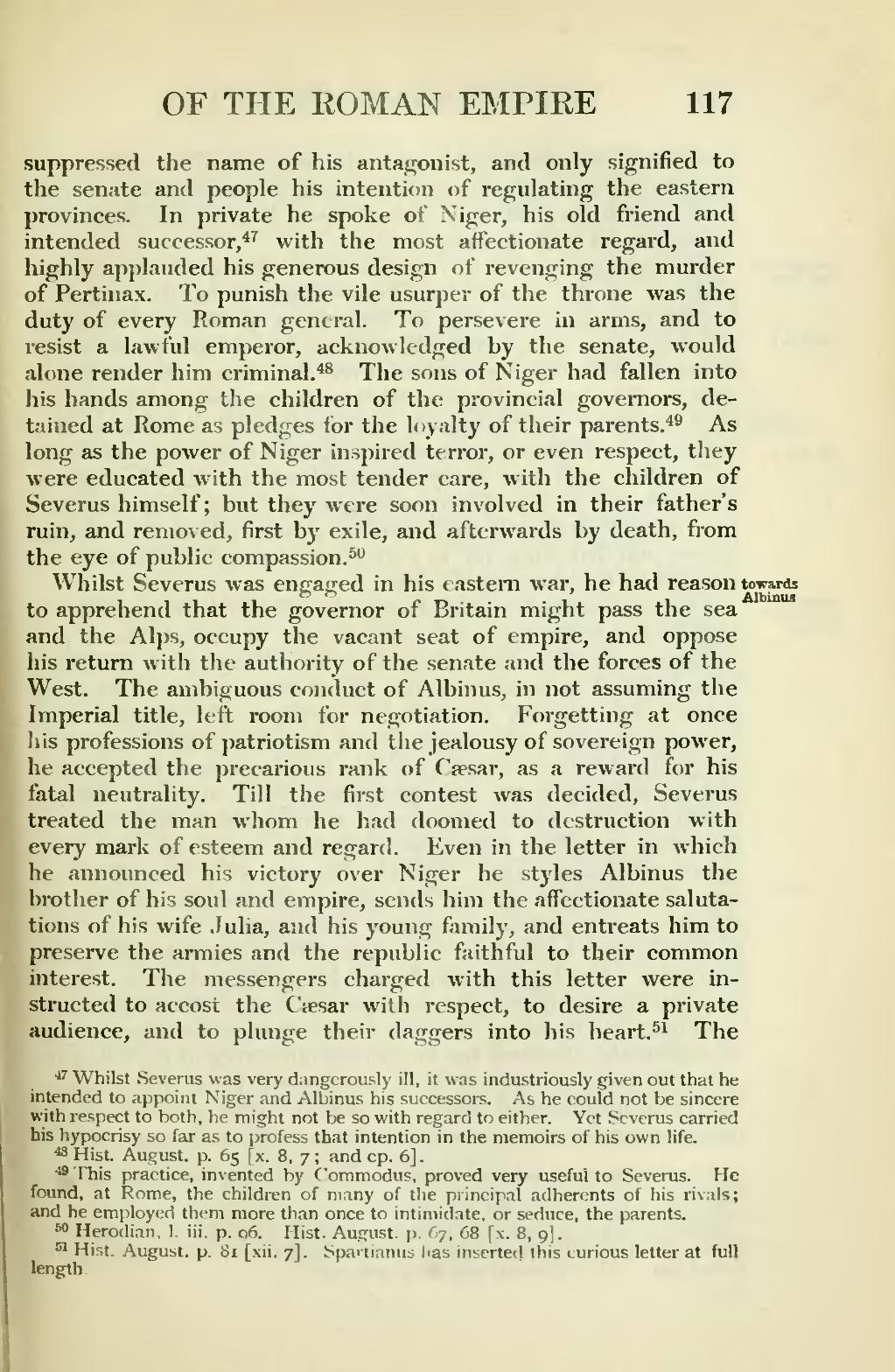suppressed the name of his antagonist, and only signified to the senate and people his intention of regulating the eastern provinces. In private he spoke of Niger, his old friend and intended successor,[1] with the most affectionate regard, and highly applauded his generous design of revenging the murder of Pertinax. To punish the vile usurper of the throne was the duty of every Roman general. To persevere in arms, and to resist a lawful emperor, acknowledged by the senate, would alone render him criminal.[2] The sons of Niger had fallen into his hands among the children of the provincial governors, detained at Rome as pledges for the loyalty of their parents.[3] As long as the power of Niger inspired terror, or even respect, they were educated with the most tender care, with the children of Severus himself; but they were soon involved in their father's ruin, and removed, first by exile, and afterwards by death, from the eye of public compassion.[4]
towards Albinus Whilst Severus was engaged in his eastern war, he had reason to apprehend that the governor of Britain might pass the sea and the Alps, occupy the vacant seat of empire, and oppose his return with the authority of the senate and the forces of the West. The ambiguous conduct of Albinus, in not assuming the Imperial title, left room for negotiation. Forgetting at once his professions of patriotism and the jealousy of sovereign power, he accepted the precarious rank of Cæsar, as a reward for his fatal neutrality. Till the first contest was decided, Severus treated the man whom he had doomed to destruction with every mark of esteem and regard. Even in the letter in which he announced his victory over Niger he styles Albinus the brother of his soul and empire, sends him the affectionate salutations of his wife Julia, and his young family, and entreats him to preserve the armies and the republic faithful to their common interest. The messengers charged with this letter were instructed to accost the Cæsar with respect, to desire a private audience, and to plunge their daggers into his heart.[5] The- ↑ Whilst Severus was very dangerously ill, it was industriously given out that he intended to appoint Niger and Albinus his successors. As he could not be sincere with respect to both, be might not be so with regard to either. Yet Severus carried his hypocrisy so far as to profess that intention in the memoirs of his own life.
- ↑ Hist. August, p. 65 [x. 8, 7; and cp. 6].
- ↑ This practice, invented by Commodus, proved very useful to Severus. He found, at Rome, the children of many of the principal adherents of his rivals; and he employed them more than once to intimidate, or seduce, the parents.
- ↑ Herodian. 1. iii. p. 96. Hist. August, p. 67, 68 [x. 8, 9].
- ↑ Hist. August, p. 81 [xii. 7]. Spartianus has inserted this curious letter at full length.
